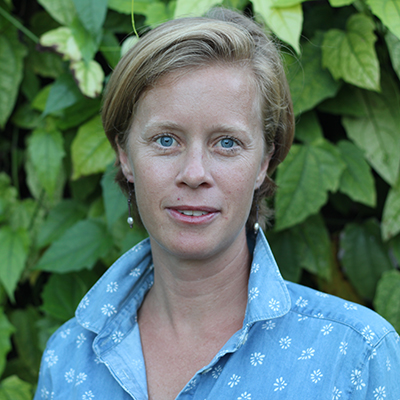Building a more Diverse Legal Profession
Dean Onwuachi-Willig is committed to making the legal profession more inclusive, on campus and off.

Building a more Diverse Legal Profession
Dean Onwuachi-Willig is committed to making the legal profession more inclusive, on campus and off.
Dean Angela Onwuachi-Willig had only been a tenure-track professor for four years when she decided to start a workshop that would help other black women law faculty advance in their careers.

Now in its 14th year, the Lutie A. Lytle Black Women Law Faculty Workshop & Writing Retreat—named for the first Black woman admitted to the bar in the South (in Tennessee) as well as the bar in Kansas, and the first woman law professor in the United States—has helped its attendees publish more than 38 books, 115 book chapters, and 1,060 articles.
“It’s a beautiful collection of women thinking together about how we can support each other,” says Onwuachi-Willig, an expert on critical race theory, employment discrimination, family law, and cultural sociology whose scholarship and mentorship have been honored twice by the Association of American Law Schools Section on Minority Groups.
It’s also just one example of Onwuachi-Willig’s career-long commitment to increasing diversity in the legal profession. In addition to the Lytle Workshop, her many efforts include increasing internship and work opportunities for students of color and advocating for diploma privilege, which allows law school graduates who meet rigorous academic criteria to become attorneys without taking the bar exam, after passing a traditional moral character and fitness assessment.
“This is her passion, her life’s work,” says L. Song Richardson, dean of the University of California, Irvine School of Law and a Lytle Workshop attendee.
The legal field is one of the least diverse professions in the US. In 2019, 85 percent of attorneys were white and 64 percent identified as male, according to the ABA National Lawyer Population Survey. One major structural barrier to inclusion is law schools’ proclivity for merit-based aid, which helps boost rankings. BU Law is one of only a few law schools that offer need-based aid.
“LSAT scores track with income,” Onwuachi-Willig says. “The people least likely to need the money are the most likely to get it. If I had a billion-dollar endowment, I would make us the first law school that meets the full need of all students.”
In the meantime, she has focused her attention on cultivating a sense of community for students of color and other underrepresented groups on campus. This year, she secured funding from more than a dozen top law firms for BU Law’s Mosaic program, which helps bring admitted students of color to campus for networking events. (The 2020 program was held virtually in accordance with COVID-19 precautions.) The additional funding has allowed the law school to more than double the travel stipend available for potential students.
Kenneth S. Leonetti, co-managing partner of Foley Hoag LLP, which helps fund the Mosaic program, says Onwuachi-Willig has been “a phenomenal leader” on diversity.
“She’s very much at the forefront of thinking about these issues,” he says.
Improved recruiting widens one point of entry into the profession, and reducing reliance on the bar exam opens up another. In 2014, Onwuachi-Willig testified before the Iowa Supreme Court in favor of diploma privilege, arguing that requiring students to take semester- or yearlong classes in certain subjects is more “pedagogically sound” than hoping students retain what they learned about those subjects in short-term courses designed to help them pass the bar exam.
Why do we put up a hurdle that we know limits the diversity of our profession? That doesn’t strike me as fair, especially in a profession that’s supposed to be committed to justice.
Currently, only one state—Wisconsin—offers diploma privilege for its students, although some states have allowed a form of the privilege because of COVID-19’s disruption to the bar exam.
Onwuachi-Willig supports diploma privilege, premised on rigorous academic requirements, for two reasons: first, she doesn’t believe the bar exam actually determines who is qualified to be an attorney; second, students of color and other underrepresented groups disproportionately fail the exam due to structural racism and socioeconomic disparities. For example, the cost of bar preparation courses is unaffordable for many lower-income students.
“It doesn’t predict who is going to be a good attorney, and, on top of that, it really limits access,” she says. “Why do we put up a hurdle that we know limits the diversity of our profession? That doesn’t strike me as fair, especially in a profession that’s supposed to be committed to justice.”
Not long into her deanship, Onwuachi-Willig raised the issue of diploma privilege in meetings with the late Massachusetts Supreme Judicial Court Chief Justice Ralph D. Gants and Trial Court Chief Justice Paula M. Carey. Gants later appointed a committee to study the idea.
The dean traces her dedication to diversity to experiences in her own life, including a high school job with an African American attorney and a suggestion from a college professor that Onwuachi-Willig become an academic. “I wouldn’t have thought to become a professor otherwise,” she says. “When you benefit from the mentorship and advice of other people, I believe you should pay it forward. Nobody makes it anywhere alone.”

